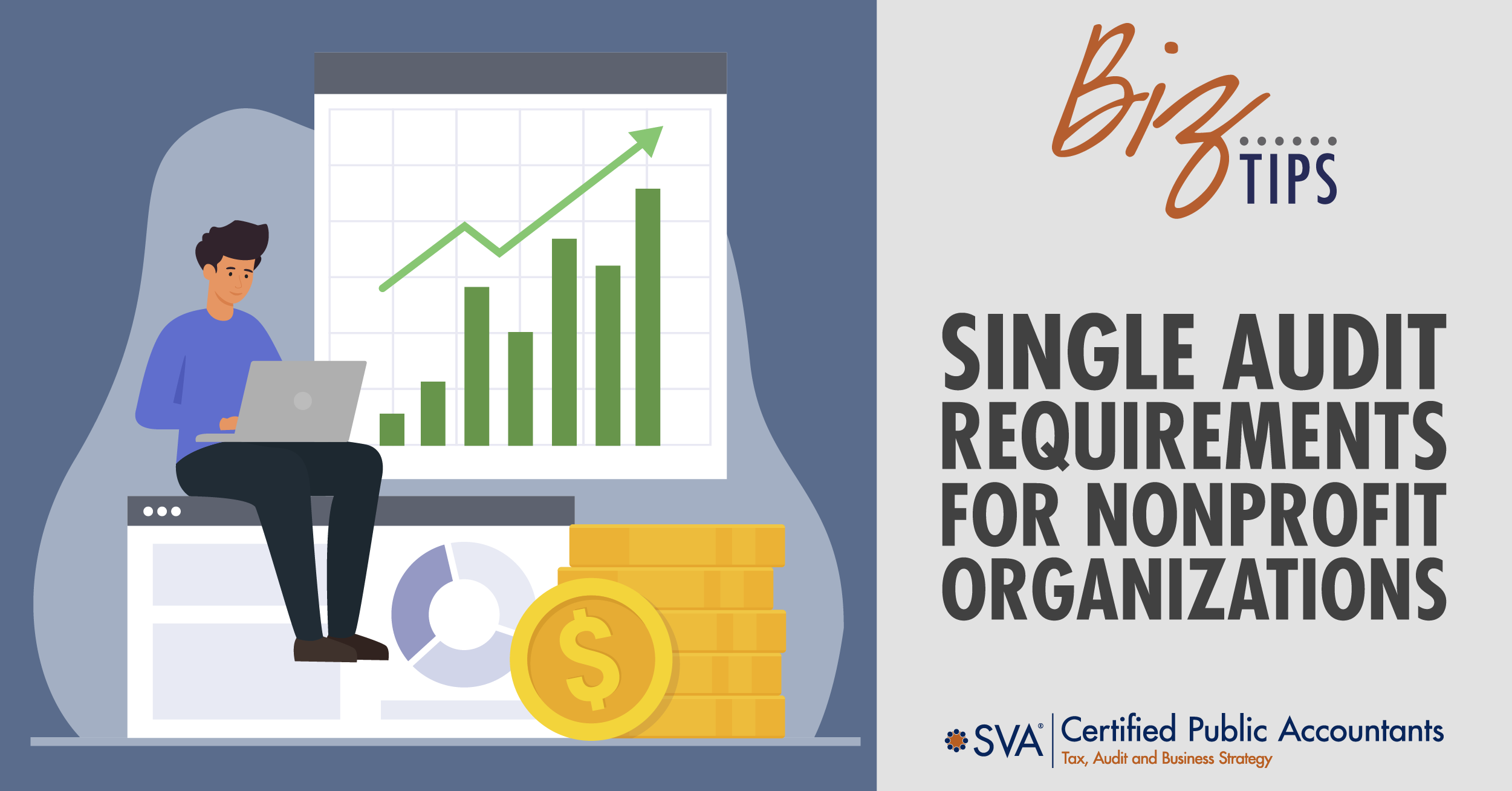Government funding brings some rather complicated reporting and auditing requirements. This can apply to both for-profit businesses and not-for-profit organizations (NFPs) that receive federal funding.
NFPs should be aware of their auditing obligations under regulations from the Office of Management and Budget (OMB). If an NFP receives and spends a minimum amount from the federal government in a given year, it must conduct a single audit for that year.
This obligation applies whether it received funding directly from the federal government or indirectly through a state or local government agency.
This article describes the single audit requirement, including when an NFP must conduct one and what issues it must cover.
What is a Single Audit?
Nonprofit organizations (as well as state, local, and tribal governments) are required to perform an audit if they spend a minimum amount of federal funds during a fiscal year. This could be a “single audit” or a “program-specific audit,” depending on factors like whether the organization spent federal money on one program or multiple programs.
The term “single” refers to the fact that organizations only need to perform this kind of audit once a year at most. Section 200.501 of the Code of Federal Regulations (CFR) sets forth when each type of audit is required.
What Organizations Need to Do an Audit?
An NFP must conduct an audit when it spends at least $750,000 of funds received from the federal government during a single fiscal year. As mentioned above, federal funds can come directly from a federal agency or indirectly from a state or local government intermediary.
A single audit is the default requirement. An NFP may elect to conduct a program-specific audit if it meets the following requirements:
- It expended all federal funds on one federal program, except for R&D (see below).
- None of the federal funds require an audit that includes financial statements.
- If it spent the money on R&D, all funding came from one federal agency and one intermediary and both approve a program-specific audit in advance.
The funds must have been in the form of awards or grants. An NFP that receives funds directly from the federal government is a “recipient.” If it receives the funds through another entity, it is a “subrecipient.” Payments to an NFP for services rendered as a contractor are not subject to the OMB’s audit requirements.
In order to know whether they must conduct a single audit, NFPs need to track both the receipt and expenditure of federal funds. If they receive federal funds indirectly, they need to work with the intermediary to make sure they are characterizing the funds correctly.
An NFP is probably a recipient or subrecipient under circumstances like the following:
- The NFP must adhere to specified federal program requirements as a condition of receiving the funding.
- The NFP uses the funds for a program authorized by statute for the benefit of the public, not the benefit of the NFP or the intermediary.
- The intermediary measures the NFP’s performance according to objectives set by the federal agency that provided the funding.
Under circumstances like the following, the NFP is more likely to be a contractor:
- The NFP’s services are part of its ordinary operations.
- The NFP provides the same goods or services to other clients or buyers.
- The NFP’s products or services are not integral to the goals or operations of the federal program.
When is the Single Audit Due?
Reporting packages are due to the Federal Audit Clearinghouse by the earlier of the following:
- Thirty days after the NFP receives the auditor’s report
- Nine months after the end of the fiscal year
What Does the Audit Need to Cover?
CFR § 200.514 describes the requirements for a single audit. The audit must use Generally Accepted Government Auditing Standards (GAGAS). The Government Accountability Office publishes current GAGAS in the Yellow Book. The most recent edition is from 2018.
A single audit must cover all parts of an NFP’s operation. An NFP can conduct a series of audits for different departments or other units as long as the finished product covers everything. Issues that an auditor must cover include the following:
- Do the NFP’s financial statements provide a fair and accurate accounting of its operations in general, and its expenditure of federal funds in particular?
- Does the organization’s system of internal controls over federal funding comply with federal requirements?
- Has the NFP complied with federal law, federal regulations, and the terms and conditions of all applicable federal programs?
- Has the NFP addressed issues identified in prior audits?
If you have any questions or would like additional information, please contact one of SVA's professionals today.
© 2022 CPA ContentPlus

